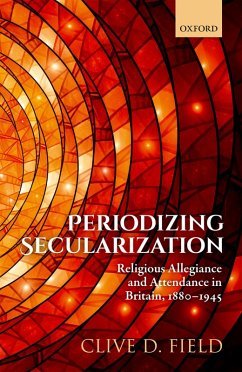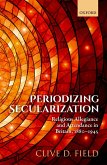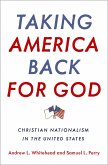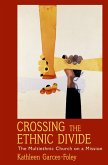Moving beyond the (now somewhat tired) debates about secularization as paradigm, theory, or master narrative, Periodizing Secularization focuses upon the empirical evidence for secularization, viewed in its descriptive sense as the waning social influence of religion, in Britain. Particular emphasis is attached to the two key performance indicators of religious allegiance and churchgoing, each subsuming several sub-indicators, between 1880 and 1945, including the first substantive account of secularization during the fin de siècle. A wide range of primary sources is deployed, many of them relatively or entirely unknown, and with due regard to their methodological and interpretative challenges. On the back of them, a cross-cutting statistical measure of 'active church adherence' is devised, which clearly shows how secularization has been a reality and a gradual, not revolutionary, process. The most likely causes of secularization were an incremental demise of a Sabbatarian culture (coupled with the associated emergence of new leisure opportunities and transport links) and of religious socialization (in the church, at home, and in the school). The analysis is also extended backwards, to include a summary of developments during the eighteenth and early nineteenth centuries; and laterally, to incorporate a preliminary evaluation of a six-dimensional model of 'diffusive religion', demonstrating that these alternative performance indicators have hitherto failed to prove that secularization has not occurred. The book is designed as a prequel to the author's previous volumes on the chronology of British secularization - Britain's Last Religious Revival? (2015) and Secularization in the Long 1960s (2017). Together, they offer a holistic picture of religious transformation in Britain during the key secularizing century of 1880-1980.
Dieser Download kann aus rechtlichen Gründen nur mit Rechnungsadresse in A, B, BG, CY, CZ, D, DK, EW, E, FIN, F, GR, HR, H, IRL, I, LT, L, LR, M, NL, PL, P, R, S, SLO, SK ausgeliefert werden.









